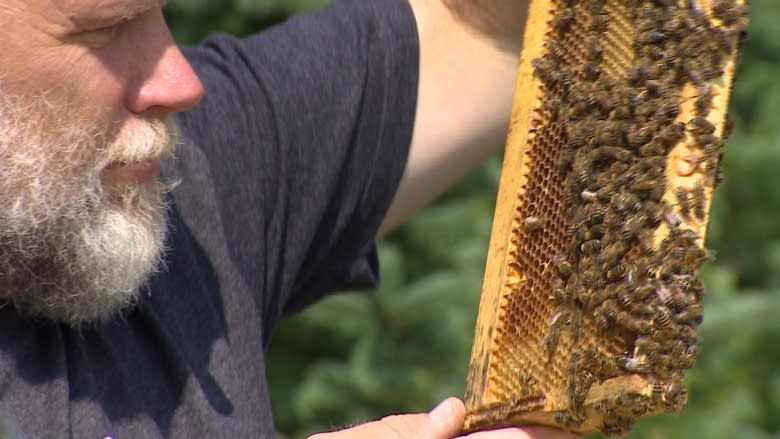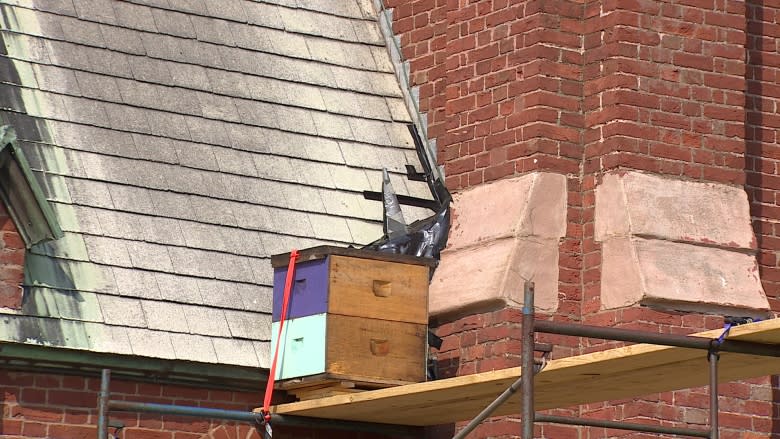Bees removed from home in church roof
A beekeeper will get a honey of a deal for offering his services to remove about 80,000 honeybees from a P.E.I. church.
Mark Thrasher has been working to get the bees out of the roof of the St. Simon and St. Jude Roman Catholic Church in Tignish.
After being contacted by an exterminator, the beekeeper, with 400 hives of his own, offered to remove the bees and relocate them to his property in Peterville.
The exterminator realized they were honeybees when contacted by the church to remove them.
The bees took up residence in the church roof three years ago and the church caretaker did everything he could to get rid of them, thinking they were wasps.
"We did use sprays you use in a store. It wasn't knocking them off," said Talbot LeClair.
"They were growing and growing and growing and they weren't dying off."
New method used for bee removal
Since the stone roof of the church can't be torn apart to remove the hives, Thrasher is using a new method to remove the bees.
The beekeeper has covered a small hole in the roof with a mesh cone that allows the bees to fly out but not back in.
The bees are attracted to a nearby hive to make a new home and Thrasher says it is working.
"They've been great ever since. They've been building up honey and have eggs and larvae of their own in there," said Thrasher.
"It's so hard to keep bees alive, and these bees here have really good genetics because without any help whatsoever they've managed to live in the church for three years."
Thrasher said new eggs could be laid by the queen and if bees are found there after the winter, the same method will be used to remove them all for good.
The bee keeper says it is important the hole in the roof is sealed before the swarm season starts in the spring, or a new swarm of bees could smell the old hive and take up residence.
The beekeeper said people should be aware honeybees only sting when they are defending their territory.
Thrasher said if people find a swarm of bees they should call a beekeeper instead of trying to kill them.



